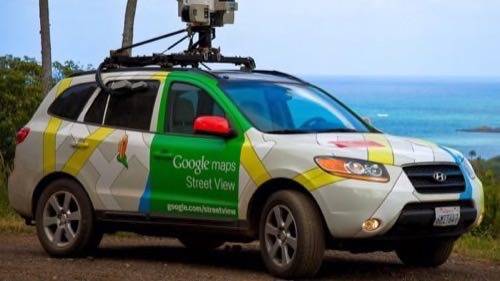
Google has agreed to settle a case brought by 38 U.S. states to challenge its Street View project, acknowledging once again that it had scooped up user data and other private information when collecting location information on the streets and roads of the U.S.
The settlement includes a pittance of a $7 million fine and an agreement from Google that it will implement internal and external programs to train employees and users alike on how to do privacy better, which really amounts to a slap on the wrist for the Mountain View, Calif., firm.
This wasn’t exactly a new admission for Google, either. In May 2010 the search giant acknowledged it had mistakenly included code in its Street View software that collects WiFi payload data – data that is supposed to assist in location apps. Of course, getting this initial admission was like pulling teeth at first, with Google at first denying the data collection, and then trying to blame one of its engineers.
(See also Google Won’t Resume Its Street View Wi-Fi Collection.)
Here in the U.S., 38 state attorneys general launched a lawsuit against Google, led by Connecticut attorney general George Jepsen, who counts this as a big win.
“While the $7 million is significant, the importance of this agreement goes beyond financial terms. Consumers have a reasonable expectation of privacy. This agreement recognizes those rights and ensures that Google will not use similar tactics in the future to collect personal information without permission from unsuspecting consumers,” Jepsen said in a statement to the press.
The takeaway from this settlement is not the monetary fine, but the fact that Google is on the hook once more for privacy violations, something the company has struggled with for years in its quest to monetize consumer data while being trusted to protect it.
(Review Tech World Overreacts to Google’s New Privacy Policy – How Does It Affect You?.)
No one worries much about Street View anymore; since 2010, Google has pretty much assured everyone it’s not going to be collecting anything more than it should. Assuming that’s true, though, is not necessarily a reason to trust Google from blundering its way into privacy minefields again.
Google Glass, for instance, could be a huge tool for mining personal information about unsuspecting people who aren’t even wearing the devices. It’s not hard to imagine tech-savvy lawyers sharpening their lawsuit knives to file the first violation of privacy lawsuits involving these devices.
(Ponder Google Glass: Our Lives Are Not Reality TV.)
For now, Google will have to come up with privacy initiatives for its employees and end-users that reinforce privacy policies and techniques. We’ll choke back the irony of that situation for now as we wait to see what Google does with this directive.
Until the next time it gets too grabby with our personal information.
Image courtesy of Google.

















